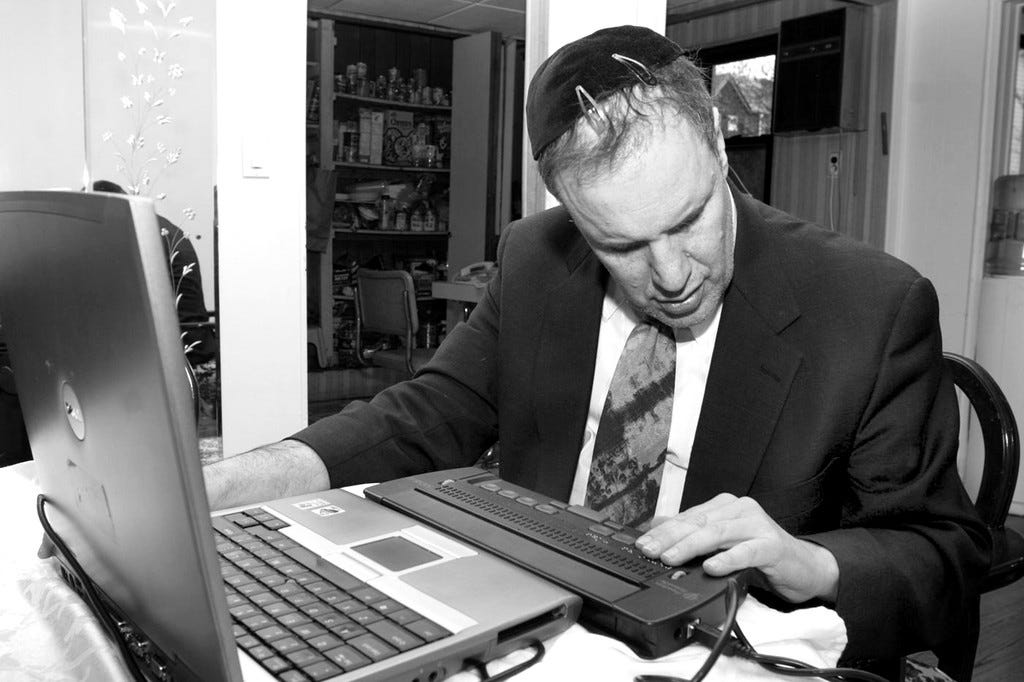The Joseph Story–An Opportunity to Focus on How Families Approach Disability
by Rabbi Michael Levy
While this week’s Torah portion, Vayigash, describes how Joseph reconciled with his brothers, let’s discuss what happened afterwards. Those ancient lessons are relevant as families, their disabled members, and society make decisions about life goals and opportunities.
1A: All in the family
The small wandering clan of Jacob is suddenly royal. Joseph does NOT award them huge, isolated tracts of land . One imagines them getting together for Shabbat, sharing triumphs and setbacks, and, yes—having and working through tough relationship moments.
1B: Keep Jewish children with disabilities in the “Family Cauldron”
While parents may dote on a disabled child, siblings often break through that “syndrome” to treat Sammy just like everybody else. Sammy is criticized for disruptive behavior, isn’t made the center of attention, has chores commensurate with his disability, and lives through the support, expectation of mutual giving, and typical teasing that make up sibling rivalry and sibling chivalry. He learns that he is not the center of attention.
2A: “It’s Not Fair!”
In the family on the tribal level, some tribes unite to fight with Deborah against the Philistines. Some stay on the sidelines. King Saul fights with his troops and commits what seem to be minor sins. God chooses and supports King David, who committed major sins and did not always accompany his troops into battle. There is not always an explanation from On High.
2B: Life lesson for family members with disabilities—you don’t always get what you want, even if you “deserve” it more than do your siblings. This prepares you for unfairness (real or imagined) in school, at work, and in social relationships. By the time you marry, you hopefully learn to be a giver, without “expecting” anything back.
3A: Jacob and all his children liked young Benjamin. He is doted upon, protected, manipulated and rescued. Strangely, he never says a word.
Luckily, he later asserted himself, and became a fearsome warrior. He alone possessed a spiritual quality which made him known as “God’s friend.”
3B: Everybody likes special needs kids. The downside is that they often have little or no say regarding their life choices and goals.
We would do well to allow them to find and follow their inner Benjamins.
May God support us as we, with our human frailties, apply ancient lessons to the contemporary challenges that face all of us in the disability community.
A native of Bradley Beach, New Jersey, Rabbi Michael Levy attributes his achievements to G-d's beneficence and to his courageous parents. They supported him as he learned to travel independently, visited Israel, and became more Jewishly observant. For 65 years, JBI International supported him with braille and recorded Judaica material.
He received rabbinic ordination from the Jewish Theological Seminary in 1981 and an MSW from Columbia University in 1982.
As a board member and now President of Yad Hachazakah, Rabbi Levy strives to make the Jewish experience and Jewish texts accessible to Jews with disabilities. In lectures at synagogues, camps, and educational institutions, he cites Nachshon, who according to tradition boldly took the plunge into the Red Sea even before it miraculously parted. Rabbi Levy elaborates, "We who have disabilities should be Nachshons--boldly taking the plunge into the Jewish experience, supported by laws and lore that mandate our integration.”
He applauds Jewish Disability Inclusion News’s ambition to give voice not just to those who work with the disabled, but also to people with disabilities themselves. “About us? Not without us” he is fond of reminding those eager to listen, and the media to whom the maxim may be out of their comfort zone.
For over 20 years, Rabbi Levy served as director of Travel Training at MTA New York CityTransit. Now retired, he is an active participant in Congregations Aish Kodesh and Young Israel in Woodmere, New York. Most of all, he relishes the company of his children, grandchildren, and large extended family.



